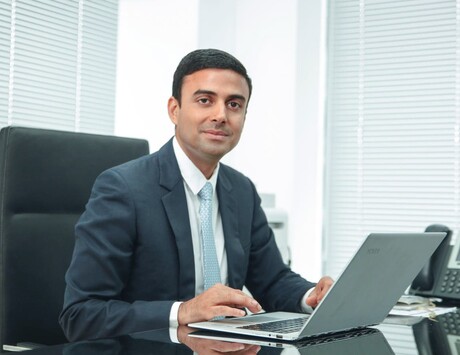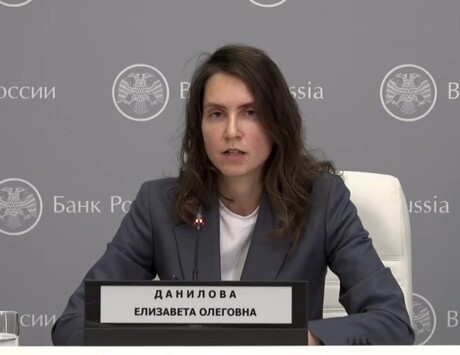Highly paid British, American and Swiss bankers and lawyers have helped in suspicious and bogus deals
Too much Panama Papers space has been wasted attempting to make links between Russian funny money and Vladimir Putin. I have no drum to bang for the Russian President or anyone else, but from what we’ve seen so far the supposed links between him and mystery money being filtered out of the country seem rather tenuous.
The way the leaks have been sewn together and presented make it look obvious that Putin must be spiriting billions of dollars out of the country. Look closer at the documented evidence and you see the case is actually nowhere near made.
Read the press coverage yourself and you’ll see what I mean; the journalists have found certain banks and individuals in the files who have previously been branded “Putin’s bankers” or “Putin’s friends” by the US government and leapt to the idea that it must therefore be Putin’s ill-gotten cash they’re ferretting away.
But they place too much unquestioning faith in Washington’s information. The Kremlin makes spurious claims about the US at fraught geopolitical times like these and journalists are rightly sceptical, so surely they’re naïve to conclude that the White House doesn’t do the same about the Kremlin.
That vast quantities of cash are being moved around and out of Russia in suspicious circumstances is not in doubt. The country is controlled by a small group of oligarchs, many of whom behave badly and, sad to say, some of them are close to Putin. Public and private funds have been stolen from the Russian people on an industrial scale.
But having spent years funding journalistic investigations into Russian corruption myself, I very much doubt that Putin is behind the looting, or that it is his money that’s moving around Panama, Cyprus and other offshore locales with the help of Mossack Fonseca and its peers.
What is most troubling about sensationally (and wrongly) placing Putin at the heart of a corrupt web is that we lose sight of the main issue these wonderful leaks expose so well: that the money-laundering and theft that is now so rife in countries such as Russia, China and Nigeria is only made possible by a huge machine operated by highly paid bankers, lawyers and accountants from the West.
Officials and businessmen in developing countries may be bleeding their countries dry but it is the West that is teaching them how. UBS, HSBC, Credit Suisse, Commerzbank, Coutts: all are all named in the Panama files (though this is not to say they did anything wrong), but they are just the start of it.
I myself was a victim of wide-scale fraud on my businesses while they were placed in trust during my days as a politician in the Duma. The legal actions I’m now taking to recover the funds have uncovered, without exception, that the executives who stole from me did so with the help of blue-chip banks and law firms in London, Switzerland and New York. Highly paid, professional British, American and Swiss bankers and lawyers — not just “dodgy Russians” — assisted in suspicious, and in many cases, absurdly bogus transactions.
Now, chasing the money from one offshore jurisdiction to another is like finding a needle in a prairie full of haystacks thanks to the work of international firms like Mossack Fonseca.
Meanwhile, the likes of Andrey Borodin, wanted in Russia for allegedly stealing hundreds of millions of dollars from his bank, sets himself up as a dissident and is granted asylum in the UK, where he lives in the mansion he was allowed to buy for £140 million. He denies the charges and says they are all politically motivated. His two alleged accomplices have just been jailed by a Moscow court.
Georgy Bedzhamov, who moved from Russia to Monaco, presumably with local professional help, stands accused of “fraud committed by a group of persons on a massive scale” from the collapsed Vneshprombank. He disputes the charges and also says they are politically motivated. His sister has been arrested for the same fraud. She too denies the charges.
Sergei Pugachev, accused of using a web of companies in Cyprus, London and New Zealand to hide the theft of hundreds of millions of dollars from his Mezhprombank, fled Britain last year and says he was the subject of a witch-hunt by the Russian authorities. He has a two-year UK jail sentence for contempt of court hanging over his head.
These characters have been able to buy vast properties in places like London and the South of France, plus dizzying arrays of offshore shell companies and trusts to move their money around. How? With the paid expertise and assistance of local real-estate agents, brokers, lawyers and accountants. The stench is bad but leaks such as the Panama Papers, the HSBC Falciani list and hopefully many more to come are breathing much-needed fresh air into the system and exposing just how problematic enablers such as Mossack Fonseca are.
As for the costs being run up by my home country trying to chase our fraudsters through the courts in London and New York, I’m not sure it’s worth it. The Western money-laundering machine is so sophisticated that prosecutions cost more than our government can afford.
When I was a politician in the Duma, I was instrumental in bringing in new plea-bargaining laws. I’m proud to say they’ve helped speed up Russia’s legal system (sclerotic and deeply flawed though it remains). I can’t take all the credit; we got the idea from the US.
Surely now it would be better for Russia and other countries with endemic fraud problems to copy America again when it comes to chasing our kleptocratic oligarchs. The US authorities have extracted about $260 billion in fines from badly behaving corporates over the past nine years. Nearly all came as a result of various types of plea-bargaining. We should learn from them and do the same. It may not result in people getting locked up but at least we’d get more of our money back from exotic bolt holes such as Panama.
The Lebedev family are owners of the London Evening Standard.



